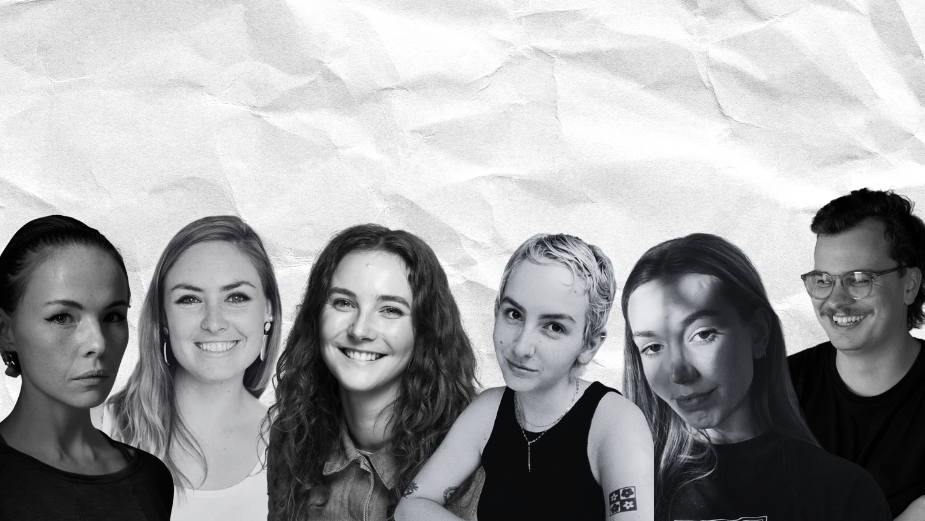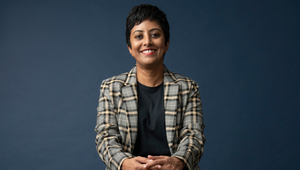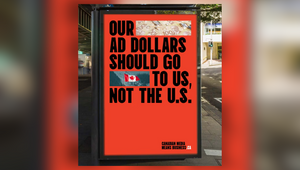
Blah Blah Blah: How Can We Describe the Power of Words?

Ironically, the power of words can be indescribable.
Finding the individual definition of a word is easy. But attempting to describe the power, the responsibility, and the magic that they hold? That's virtually impossible.
Words have the ability to change our perceptions, our minds, and the world..
It’s the powerful speeches made at a podium, the thanks given at a funeral, the jokes made around the rim of a glass, the tall tales that get taller with each retelling. It’s the stories that inspire, the taglines that sell and the promises wrapped around pinkies.
It’s songs, tattoos, novels, birthday cards, letters, poems, notes, receipts, and names.
It’s the feeling of bravery dancing on your midnight breath and the healing of the deepest of wounds.
To hold such a responsibility takes a person who understands the power, even if they can’t describe it.
This industry is lucky to have those people within its walls. Here, some of Australia’s best copywriters attempt to describe this privilege.

Katie Moore, associate creative director - 303 MullenLowe Sydney
Copywriters hold a tremendous position of quiet power. What we say is often projected to tens of millions of people across the globe. Our words influence and persuade people to buy a product or cultivate a certain opinion. We have the ability to make and break trends and to shape how the vast majority think about the world. And that’s an incredible responsibility. Which is why it’s so important to be in-step with the zeitgeist. To be culturally relevant …and culturally responsible.
Especially in a commercial environment. It’s our job to not only reflect the way our audience writes (and talks) but to understand it and use it appropriately. Where new language comes from, its motivations — diving head first into a subreddit or the far corners of TikTok, or even a history book is just as important as regurgitating the words themselves. Our words are tiny sound bites of education for the consumer. We have the power to make their world really wide, or conversely, really narrow. If our words are our legacy, we need to be on the right side of history. Or herstory. Or just The Story.
TDLR; it’s our responsibility as writers to shape the way others think about the world. And to do that, we must stay relevant.

Riana McKenzie, copywriter - Clemenger BBDO
There’s a constant chicken and egg argument about a creative’s duty in advertising - Do we hold a mirror up to culture or do we shape it? I think the better question is - are you happy with what you see in the mirror? If not, change it.
We have more power than we think in this job. And it’s creatively delicious. Think about it - we are given platforms that can now reach thirty two million - or a single human being. Our creativity can speak to people, groups, bikers, cooks, people who like cats… Even aliens if we wanted. We collect different tones like infinity stones. We write stories. We play pretend. We solve problems. We can make people laugh, sob, protest, relax, try tight leather jeans on a date, sign that thing, fall in love, quit their job, or just believe in something; For a creative, this job’s a family-sized party mix.
So, when it comes to honing this craft, look outside of ads. The world is a goldmine of words people love and actually want to read. So with every new audience, excavate them. Ask yourself: What do they read? What songs do they sing? What memes make them laugh? What movies blow their mind? What do they write on Reddit? What do they write on a protest poster? What would they get tattooed across their chest? All words they love that aren’t ads.
Your craft should become like an elastic band. You'll reach your limits. Know where you can push it. You'll flex. Retract. And sometimes, realise it can turn into something else altogether like a makeshift finger gun. In other words - Make what you want with what you’ve got. Do your thing and do it well.
Have an opinion. Be bold. Whether it’s worthy or weird or everything in between. We need to be braver original writers. The moment we all sound the same, we lose our voice and people’s willingness to listen.

Jessica Thompson, creative director - The Hallway
Lately, I’ve been thinking about the credit we ought to be giving to our audiences’ intelligence. Too often, writers are effectively told to ‘dumb it down’ to make their work more accessible, but dumb isn’t the same as simple. There’s a lot of power (and skill) in simplicity, but I believe that for simplicity to be effective, we’ve got to embrace the meaningful silence of everything we’re not saying and invite our audience in to connect the last two dots themselves. Equally, on the right project, there’s a lot of power in evocative language and transportative storytelling. We might say less and let our audiences read between the lines.
We might say more and trust our audiences to come with us as we try to take them somewhere. Whether it’s with a little smile at a clever one-liner or tingles after a well-told story, we have the opportunity to form connections between brands and their customers, and the privilege of making people feel something with our work. I think we can get there by crediting our audiences with the intelligence and experience we all believe we have. If you’ve felt it, they’ve felt it. If you get it, they’ll get it.

Anneliese Sullivan, senior copywriter - DDB Melbourne
I remember sitting in a uni lecture about how language shapes our perceptions — speakers of European languages that ascribe gender to objects tended to describe these objects with other gendered undertones, despite there being no real reason for their assigned masculinity or femininity. Languages that use cardinal directions every day (like many First Nations languages) means their speakers are more aware of their geographical location than those who more often describe directions in relation to the self — using ‘left’ and ‘right’, ‘behind’ and ‘in front’.
Nearly a decade on, and particularly in a time when suddenly I’m not the only one who cares about grammar (the singular ‘they’ is correct, by the way, and always has been — plus, let’s just be nice to each other), I’m reminded of the weight of my words. As we build peoples’ perceptions of brands as advertisers, we build — at least to some extent — their perceptions of the world. The words we use to describe bodies, for example, will have a lasting impact on the body image of a generation (I grew up in the noughties, so I should know).
The fictional worlds we create in our ads have the possibility to not just reflect the culture of the day, but to shape it. It’s a big responsibility, but it’s also a great opportunity. Let’s use it well.

Sophie Aitken, copywriter - Ogilvy Sydney
No one wants to see an ad. They just don’t. But media placement has got them held hostage, and if they want to watch that YouTube clip, they’re going to have to watch that 15 second spot. That’s what I keep in mind when I’m thinking about my responsibility as an advertising copywriter: that no one wants to see what I’m writing. It’s not entirely encouraging, but it is a reminder that I better be writing something good.
Because an ad for a telco has made me cry. An ad for a power company too. So have plenty of other things that you don’t typically associate with tearful moments (unless you get an exorbitant bill). A copywriter gets to share human truths and tell them beautifully. If we’re able to do that, the people who just came here to watch an unboxing video might not be quite as annoyed at whoever invented the term ‘unskippable’.
I seek inspiration everywhere as a writer. Even the clever and pithy lines I read in internet comments sections. Obsessively reading anything and everything that makes me jealous. That’s my daily ritual as a writer.

Joe Ranallo, associate creative director - CHEP Network
Outside of the whole ‘don’t get a fascist into power’, as writers we have a responsibility to not be insanely boring. I have zero stats to back this up, but I would guess that people are starting to read fewer books while simultaneously reading way more words. Social posts, ads, the disgusting depths of a Reddit thread or subtitles on thirty back-to-back episodes of Vanderpump Rules.
With all this stimulation, commercial writers need to interrogate how they say something as much as strategists interrogate what a brand is trying to say.
We’re told to read as much as possible to master the craft, but that doesn’t have to be books. If the thought of reading James Joyce makes you want to immediately resign, find an interesting voice somewhere else. Terrible pop lyrics or amazing rap verses. Overwritten Google reviews for restaurants with a 2-star average. Regional TV ads for everything-must-go car dealerships. Fan fiction that ruins the innocent memory of your favourite childhood video game. Find inspiration in interesting places and your writing will be more interesting.
Read things that don’t bore you. Write things that don’t bore everyone else.















